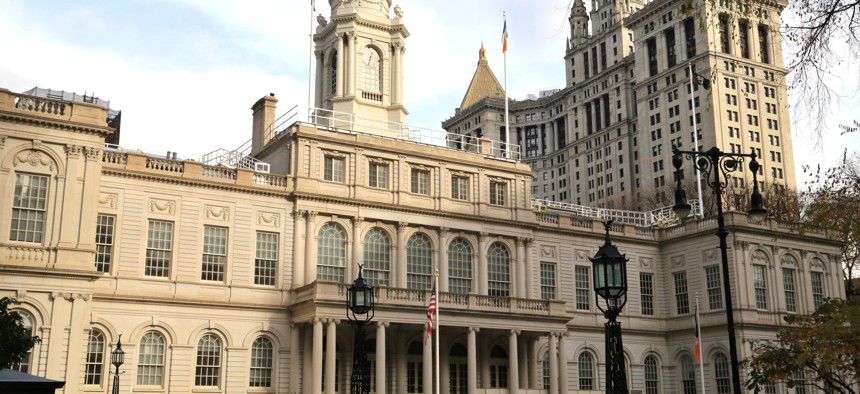Opinion: New York City Council and nonprofit leaders should build relationships beyond funding applications. Here’s how.
Both groups should take advantage of the opportunity for a fresh start given by voters this past November to finally address the city’s flawed and challenging contract application process.

City Hall Douglas Sacha/Getty Images
New York City’s newest City Council members have an enormous opportunity to improve the governing body’s relationship with the numerous nonprofit organizations serving communities across the city.
For years, nonprofits have argued the application process which spans nine months – with the slightest error extending the process further – provides poor guidance and is riddled with unnecessary red tape. More than a decade of combined experience working in city and state government helping nonprofits achieve their public funding goals have shown us how cumbersome the process can be, especially for small and young community based organizations.
The Council, starting this year, should search for innovative methods to assess the hundreds of funding applications pouring in from nonprofits. These methods should prioritize efficiency and accessibility as well as transparency.
Much of these efforts can begin with the application site which should include clear, jargon-free language rather than confusing, dense paragraphs lacking crucial context and details. It might even be worthwhile to experiment with video tutorials showcasing successful applicants along with their tips and strategies.
The Council, however, is not the sole factor in improving a relationship made complicated by a flawed process. Nonprofit leaders must also recognize the importance of building relationships with Council members as partners in addressing these same issues.
Both nonprofit leaders and Council members should take advantage of the opportunity for a fresh start given by voters this past November.
Take time to develop a relationship, identify mutual goals, and potential areas of collaboration for issues within the district. Nonprofit leaders should be eager to introduce members to their staff and volunteers, showcase their impact, and share the struggles and opportunities ahead for your organization.
Council members must recognize that their greatest contribution must come from advocating their constituents' concerns to Speaker Adrienne E. Adams rather than placing more pressure on an already overworked and underpaid legislative staff. Speaker Adams, more than anyone else in city government, possesses the ability to make impactful change to this onerous process.
The stakes are higher now more than ever for our city’s nonprofits, but our leaders’ potential to tackle these challenges directly is greater.
Corey Ortega is Senior Director of Government Relations at HZQ Consulting and the former Executive Director of the New York City Council’s Black, Latino/a/x, and Asian Caucus.
Evelin Collado is Director of Strategic Planning at HZQ Consulting and the former Legislative and Budget Director for the New York City Council.